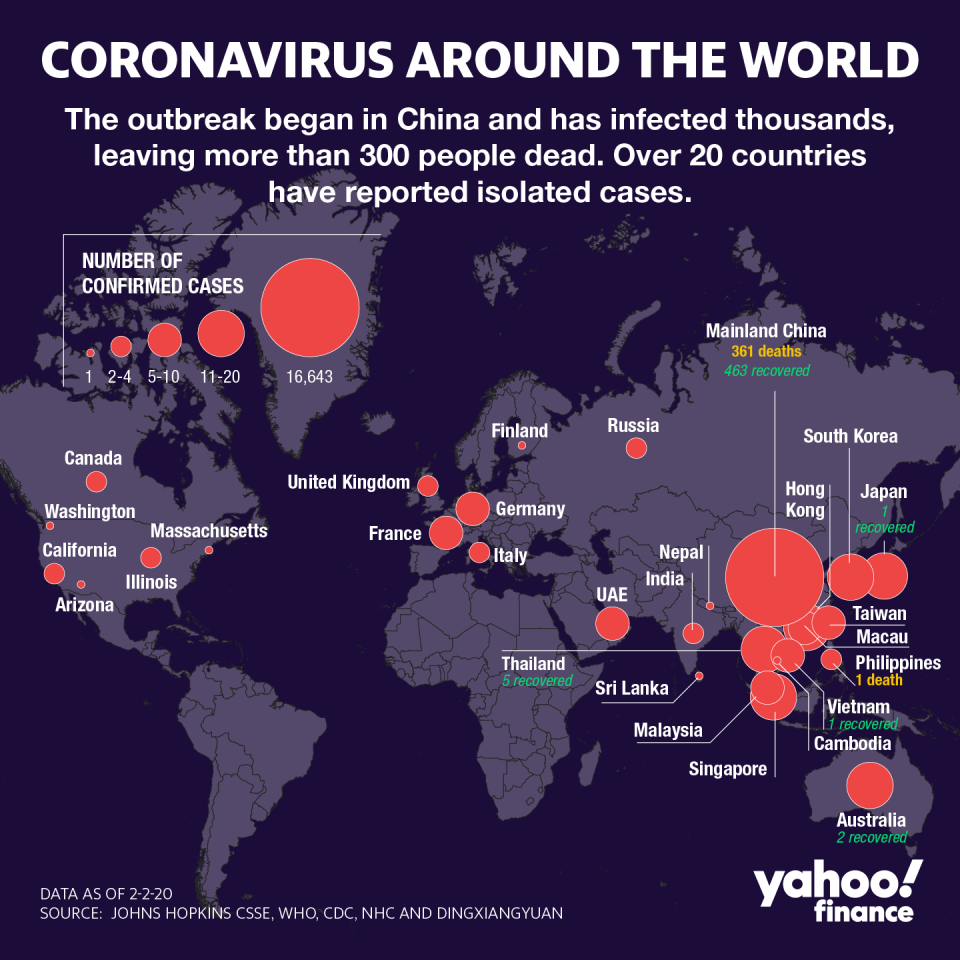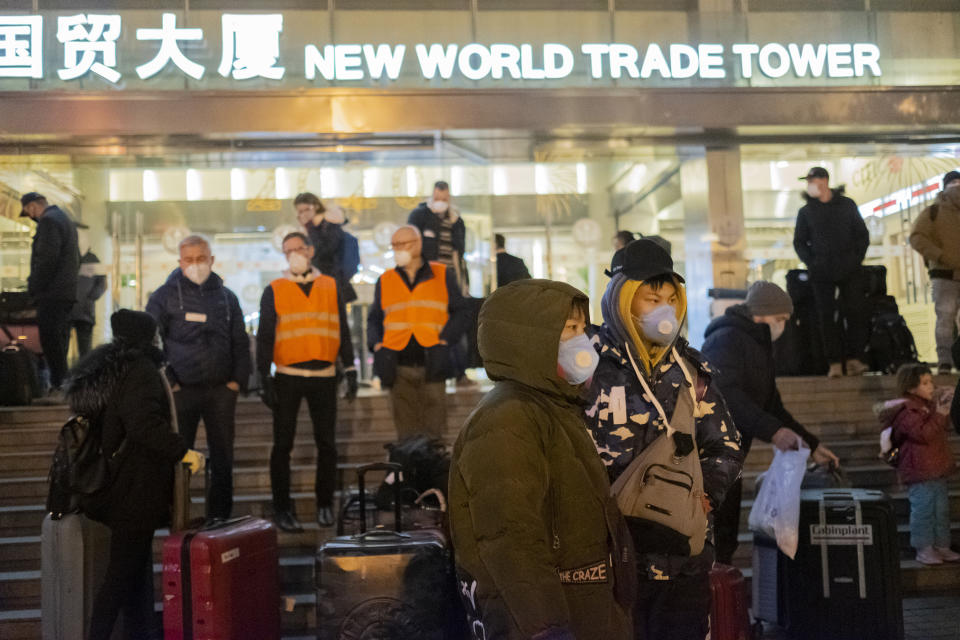Coronavirus update: China's infection toll rises as stocks pay the price; Gilead soars on drug hopes
China dramatically hiked its official casualty count in the ongoing coronavirus outbreak over the weekend — while the fallout took a toll of its own on the country’s asset markets.
The death toll has surpassed 360, making the coronavirus officially more deadly than the severe acute respiratory syndrome (SARS) epidemic of the early 2000s. Meanwhile, the number of confirmed cases within the country’s borders shot up past 17,000, as the U.S. upped the number of confirmed cases to more than 10, fresh from having declared a public emergency.
Investors marked the return from the Lunar New Year holiday week by selling off stocks — pushing markets to their worst week in five years. The Shenzen Component index (399001.SZ) plunged by a staggering 11.6% and the Shanghai Composite index (000001.SS) dropped by 7.7%.
As China grapples to contain new infections, last week marked a dramatic turning point in the crisis, as multiple airline carriers sharply curtailed or suspended flights in their entirety, which has prompted economists to mull the immediate-term impact on global growth.
U.S. officials have advised against travel to mainland China and implemented stringent travel protocols, while the Transportation Safety Administration (TSA) said airlines will have to ask travelers if they have recently been to China.
Beijing has lashed out at countries and airlines that have implemented travel restrictions or suspensions, fearing the impact on its economy. The spread of the virus may affect the implementation of the provisional U.S.-China trade accord, with Bloomberg reporting that China is seeking flexibility as the coronavirus continues to upend business and commerce.
What’s happening in markets

On Monday, U.S. benchmarks staged a dramatic reversal from the virus fears that walloped Wall Street on Friday, all the more noteworthy given the rout in Chinese stocks. The central bank pumped $171 billion into the system over the weekend, but to little avail.
Gilead (GILD) joined the number of biotechnology companies racing to find an effective treatment for the viral outbreak. According to a report in Bloomberg, the drug giant is testing Remdesivir, a new antiviral drug meant to treat Ebola and SARS, as part of a coronavirus protocol. The news helped send its stock up by over 5% in intraday trading.
Meanwhile, the travel and leisure industry is still suffering from China’s continued isolation as the outbreak rages. Last week, major airlines such as United Air (UAL), American Airlines (AAL) and Delta (DAL) all saw their shares tumble after announcing they would suspend their China flights, but recouped some of those losses on Monday.
“We continue to believe that the global government response to the coronavirus has been aggressive and should eventually halt or limit the spread of the disease,” said Mark Haefele, UBS Global Wealth Management's CIO, in a Monday research note to clients.
“However, it is difficult to know how long it will be before the number of new daily cases begins to fall. And the longer that production facilities in China remain shut, the greater the risk of supply disruptions for the global economy,” he added.
Adding to the economic gloom, Saudi Arabia and other oil-producing countries are reportedly mulling production cuts, with the expectation that the coronavirus will crimp global demand.
Businesses have largely pulled back, with reports of empty streets in parts of China and Hong Kong as some large employers close offices and ban travel. Over the weekend, Apple (AAPL) said it would close its China-based stores: Other companies that have taken similar moves include Starbucks (SBUX), McDonalds (MCD), Microsoft (MSFT), Google (GOOG), Tesla, IKEA, Levis and Toyota.
The impact around the world

Last week, Japan and Singapore announced they would join the growing list of countries that are slapping restrictions on travelers from China, especially those with a recent travel history in Hubei province. Hong Kong, after mounting public pressure, also declared it would close some of its borders to China.
Earlier in the week, Russia, the U.K. and U.S. limited travel to and from China.
Anjalee Khemlani is a reporter at Yahoo Finance. Follow her on Twitter: @AnjKhem
Read the latest financial and business news from Yahoo Finance
Follow Yahoo Finance on Twitter, Facebook, Instagram, Flipboard, SmartNews, LinkedIn, YouTube, and reddit.
